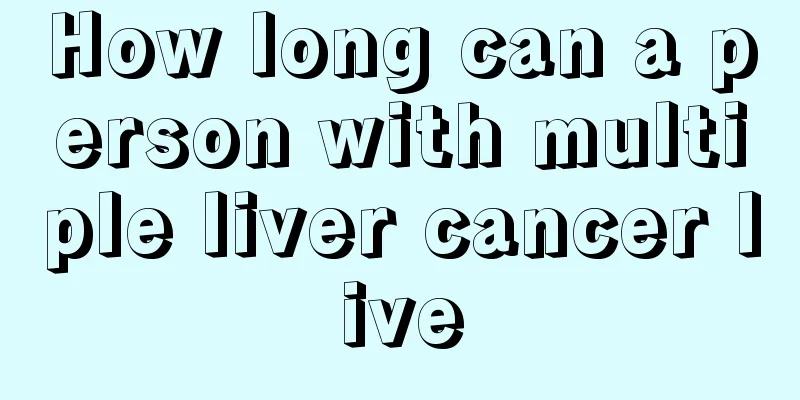Pain in right cervical shoulder?

|
The phenomenon of right cervical shoulder pain is mostly caused by cervical spondylosis. Some people suffer from cervical pain due to work, and some people suffer from cervical pain due to long-term playing of electronic products. There are many causes of cervical spondylosis. It is best to go to the hospital for a check-up. You must reduce bowing your head, move your shoulders regularly, and participate in some physical exercises appropriately. These are all beneficial to the recovery of the disease. How can office workers prevent cervical spondylosis? 1. Office workers should first maintain a natural sitting position as much as possible, with the head slightly tilted forward, and maintain the normal physiological curves of the head, neck, and chest; the height ratio between the desktop and the chair can be raised or lowered to avoid excessive backward or forward bending of the head and neck; in addition, a customized work board with an inclined surface of 10 to 30 degrees from the desktop is more conducive to adjusting the sitting posture. 2. For those who work at a desk for a long time, they should purposefully turn their head and neck to the left and right several times every 1 to 2 hours. The movement should be gentle and slow, so as to achieve the maximum range of motion in that direction. Or they can do shoulder-squeezing exercises, slowly tighten their shoulders for 3 to 5 seconds, then hold their shoulders upward for 3 to 5 seconds, and repeat 6 to 8 times. They can also use two desks, support themselves on the table with their hands, keep their feet off the ground, tilt their head back, hold for 5 seconds, and repeat 3 to 5 times. 3. When you look at objects at close range for a long time, especially when you lower your head, it will not only affect the cervical spine, but also easily cause visual fatigue and even induce refractive errors. Therefore, whenever you sit at your desk for too long, you should look up and gaze into the distance. Symptoms of cervical spondylosis 1. Dizziness Vertigo (neurology) is a common symptom of patients with cervical spondylosis. Most patients experience dizziness (neurology) when they suddenly turn their heads. In severe cases, they may also experience cataplexy. This is because the vertebral arteries of patients with cervical spondylosis are compressed by the proliferative changes of the cervical spine. When there is a transient cerebral ischemia, this symptom is prone to occur. Under the influence of this factor, patients with cervical spondylosis may also experience symptoms of autonomic dysfunction (neurology) such as nausea, vomiting, headache (neurology), sweating, etc. 2. Unstable blood pressure The symptoms of cervical spondylosis are unstable blood pressure. After the onset of cervical spondylosis, the patient's sympathetic nerve function will be disordered, and the vertebral basilar artery blood supply will be abnormal, which can easily lead to symptoms of unstable blood pressure. For example, some patients with cervical spondylosis often have symptoms of increased and decreased blood pressure. 3. Swallowing disorders Patients with cervical spondylosis will also experience swallowing difficulties in the early stages. The main symptoms are a feeling of obstruction in the throat when swallowing, or a feeling of foreign matter in the esophagus. This is because the posterior wall of the esophagus of patients with cervical spondylosis is directly compressed by the bones of the front edge of the cervical vertebrae and the autonomic nervous system is disordered, causing esophageal spasm or excessive relaxation, resulting in symptoms of dysphagia. 4. Weakened upper limb muscle strength Weakened limb muscle strength is a symptom of cervical spondylosis, which is a symptom caused by motor nerve damage. It manifests as difficulty for patients with cervical spondylosis to hold objects, and some patients with cervical spondylosis easily drop objects. The skeletal muscles of the limbs are innervated by more than two nerves. Damage to a single nerve will result in mild muscle weakness, while involvement of the main nerve roots may cause obvious motor dysfunction. |
<<: Symptoms of heat stroke in spring
>>: Sudden thigh pain and unable to walk?
Recommend
Wash your hair to turn white hair into black hair
Modern people have great work pressure and overus...
What are the symptoms of developing breasts in high school students
High school girls are in adolescence and most of ...
Will eating too much red meat cause colon cancer? Remember a few dietary principles to prevent colon cancer
Intestinal cancer is a type of cancer that occurs...
I was very swollen the next day after taking the hyaluronic acid injection
Hyaluronic acid is a relatively common beauty met...
What foods can prevent and treat kidney cancer
What foods can prevent and treat kidney cancer? K...
What dietary factors can induce liver cancer? To prevent liver cancer, pay attention to these dietary factors.
Smoked food should not be consumed with beer beca...
How to check if it is lung cancer?
The causes of lung cancer include long-term smoki...
Can toothpaste remove dark circles?
Generally speaking, toothpaste cannot treat dark ...
How to make rose perfume
In our lives, many people like the scent of roses...
The main causes of breast cancer
Among the common breast diseases, breast cancer i...
Soy lecithin is actually the nemesis of a disease!
When mothers choose milk powder for their babies,...
Suspect that I have rabies_Feel that I have rabies
Rabies may not seem serious, but it can actually ...
Is strabismus hereditary?
Strabismus not only affects the normal vision of ...
How to remove ink from clothes
For those of you who are engaged in artistic acti...
What are the symptoms of liver cancer? Introduction to radiotherapy for liver cancer
Liver cancer is a common disease in life, but mos...









